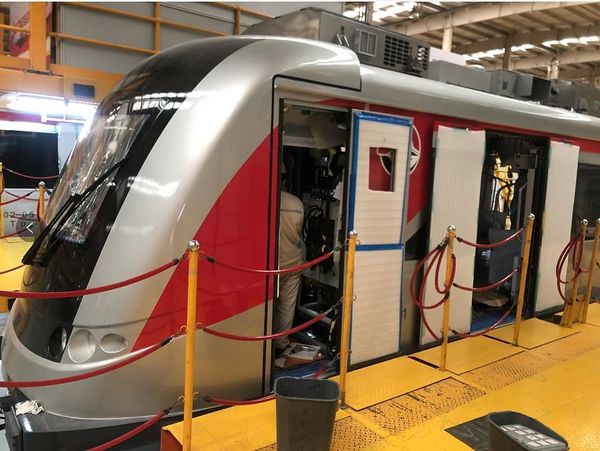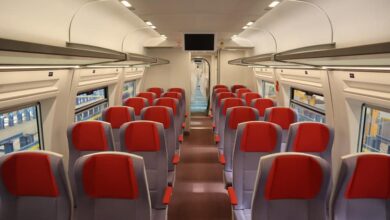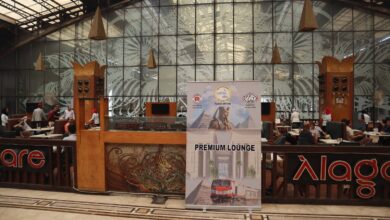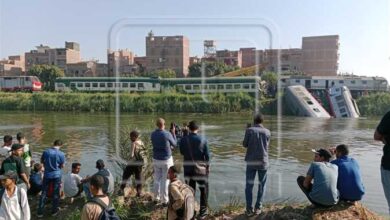
Egyptian Transport Minister Kamel al-Wazir announced Sunday that the railway development process includes the modernization of locomotives and coaches, at a cost of up to LE200 billion and is set to be finalized by 2023.
During an interview with Ahmed Moussa’s TV show “Ala Massoulity” (On My Responsibility), Wazir said: “The best four international companies are modernizing the signaling system and control means throughout the country.”
The modernization of the signaling system on the Cairo-Alexandria, and Port Said-Zagazig lines are set to be done by the end of this year, he said.
The value of modernizing signaling and control systems amounts to LE50 billion, while the cost of modernizing railway tracks is an additional LE50 billion.
Once the comprehensive overhaul is done by 2023, Wazir assured tit will prevent accidents in the absence of human intervention.
The government aims to overhaul railway facilities though periodic updating of infrastructure and coaches, focusing on safety and aiming to utilize unconventional methods to provide further resources to implement developmental plans.
Wazir said earlier this month that the state has ordered no old coaches be on the railways by the end of this year – to be either completely renewed and developed or replaced entirely.
Egypt signed a contract back in 2018 with the Russian-Hungarian Transmashholding Company to supply 1,300 train coaches to the ENR. The deal is the largest deal in the ENR’s history, amounting to 1.16 billion euros.
This deal represents 40 percent of the ENR’s coach numbers, and therefore represents a breakthrough in the development of passenger trains.
The railway system’s strides in development comes via the great interest that President Abdel Fattah al-Sisi has attached to developing the transport sector, providing all capabilities to upgrade it according to the latest global technologies.
The deal includes 500 third-class units with forced ventilation, 500 third-class units with air-conditioning, 180 second-class units with air-conditioning, 30 second-class units with air-conditioning and buffets, and 90 first-class units with air-conditioning.




